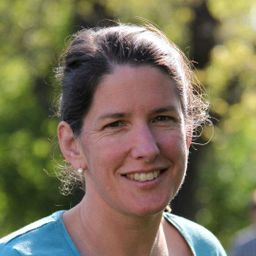
Sessions in which Prof. Elizabeth Kryder-Reid participates
Saturday 4 June, 2016
Tuesday 7 June, 2016
In exploring the broader question “What does heritage change?” this session presents work that is extending heritage policies and practices beyond elite cultural narratives. Using diverse disciplinary perspectives and drawing from case studies around the world, the presenters explore contexts in which stakeholders’ perspectives and choices have been catalysts for change, democratized knowledge, or exposed gaps in contemporary heritage practices. The case studies reveal complex and often conte...
Sessions in which Prof. Elizabeth Kryder-Reid attends
Friday 3 June, 2016
Welcome addresses and cocktail, followed by the Concordia Signature Event "The Garden of the Grey Nuns". As the opening ceremony and cocktail take place in the former Grey Nuns' Motherhouse, recycled into campus residence and reading rooms by Concordia University, delegates will also have the possibility to discover the video Three Grey Nuns (3 minutes, by Ron Rudin and Phil Lichti. Three Grey Nuns recount their memories of communal life in the Grey Nun’s Motherhouse. Built...
Working with archival documents and the current-day morphology of the Grey Nuns' site, Dr Cynthia Hammond, Dr Shauna Janssen, in collaboration with Dr Jill Didur, will curate a series of installations and performances that speak directly to the rich heritage of a specific urban landscape: the gardens of the Grey Nuns' Motherhouse, now part of the Concordia University downtown campus. Visitors will have the opportunity to explore the lost working gardens of the Grey Nuns. As with other such...
Saturday 4 June, 2016
What if we changed our views on heritage? And if heritage has already changed? While, on the global scene, states maintain their leading role in the mobilization of social and territorial histories, on the local scale, regions, neighbourhoods and parishes have changed. Citizens and communities too: they latch on to heritage to express an unprecedented range of belongings that no law seems to be able to take measures to contain, often to the discontent of...
Heritage practices often lead to social exclusion. As an "Authorized Heritage Discourse" (AHD) (Smith 2006) may define what is considered to be heritage, a certain set of social values can come to exclude other values. By formulating heritage policies which reproduce the existing AHD government may further such exclusion. Every now and then AHDs are challenged, leading to what political scientists like Ross (2007; 2009) call "cultural contestations" between groups. These are surrounded ...
This festive event will offer delegates a taste of one of the iconic dishes of Montreal, the smoked meat sandwich, imported by Jewish immigration from Eastern Europe in the early 20th century. In particular, the tasting will allow a discovery of the products of the renowned international institution Schwartz's, the Hebrew Delicatessen for which Montrealers and tourists alike are willing to wait in long line-ups. During the tasting, “Chez Schwartz,” a documentary produced by Garry B...
Most of what we experience as heritage emerges into conscious recognition through a complex mixture of political and ideological filters, including nationalism. In these processes, through a variety of devices (museums, scholarly research, consumer reproduction, etc.), dualistic classifications articulate a powerful hierarchy of value and significance. In particular, the tangible-intangible pair, given legitimacy by such international bodies as UNESCO, reproduces a selective ordering of cul...
Sunday 5 June, 2016
We would like to propose a session, building on the one we ran at the 2014 CHS conference in Canberra, on how emotion and affect feature in the fields of heritage and museums studies, memory studies, public history, heritage tourism, studies of the built and urban environment, conservation, archives and any field of study that deals with the emotional impact and use of the past in the present. There is an increasing interest in how emotion is a form of judgement on things that affect ou...
Digital installations and interventions have been seen as a promising ways to support and foster dialogue in museum exhibitions. How does this potential translate into practice and does it enable reflexive and critical approaches towards heritage-making? This session aims to explore how digital installations and interventions in the context of museum exhibitions envision the notion of the ‘dialogic museum’. It particularly aims to articulate and problematize the role of digital in...
"What does heritage change?" is a multifaceted question to which the answer(s) are in primary respects related to real-life negotiations among different groups of citizens, cultures, races, ethnic groups, sexual identities, and social classes about received, official and/or widely accepted or accomodated intangible attributes, cultural traditions, historic monuments, buildings, and other transmitted or revived historical legacies. Heritage designated by and for whom, for what motivations, an...
Monday 6 June, 2016
The field of heritage has emerged as a key site of reflection. Influenced by shifts in the academy (e.g., post-colonial, post-structural and feminist theories), heritage scholars are bringing increased attention to the deployment of heritage as both a conceptual category and a contested field of power and discourse. Nevertheless, significant challenges remain in communicating what comprises the theoretical and methodological toolkit of heritage studies. Scholars are still mapping out the nuan...
Around the globe the planning of large-scale memorial-museum projects concerned with violent histories are frequently marred by conflict, omission, and competitions of victimhood. This problem also extends to scholarship on genocide and memory. “Moving memory” is a collaborative multi-sited research exhibition about the Armenian and Roma genocides that proposes creative solutions to these museological and scholarly conflicts around commemoration. Our multi-sited event includes two pr...







